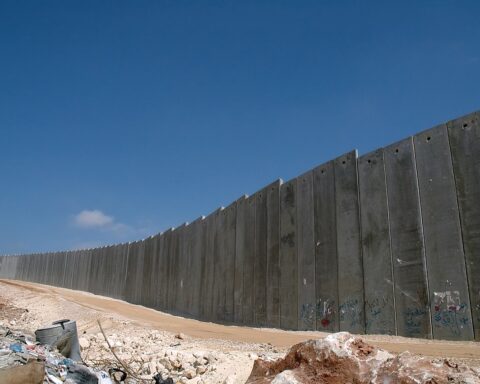Israel and Palestinian militants halted their fire for several hours early on Thursday amid efforts to reach a truce, although intense rocket fire and further airstrikes throughout the day dashed hopes of an imminent ceasefire.
It was not immediately clear if the seven-hour quiet – the longest since the attacks began 11 days ago – was part of an agreement that broke down or just a temporary lull in the violence. A Hamas official had earlier said a ceasefire was in reach, and Israeli media reports suggested the military believed its “goals” had largely been met.
The pause in violence came a day after the US president, Joe Biden, who had largely avoided public pressure on Washington’s ally, told the Israeli prime minister, Benjamin Netanyahu, that he expected “a significant de-escalation” to take the situation towards a ceasefire.
However, the brief calm between 1am and 8am local time was broken when air-raid sirens sounded in Israel near the Gaza frontier, and Israel’s military said a fighter jet had struck a rocket launcher. Later, militants fired an anti-tank missile at an empty Israeli military bus near the frontier, lightly wounding a soldier.
Both sides in the conflict had denied on Wednesday that a truce was imminent but efforts are continuing amid growing international calls. Israel’s “security cabinet” is due to meet on Thursday evening, with local media suggesting a ceasefire will be discussed.
France has circulated a UN resolution adding pressure on the US to demand a ceasefire, and issued a joint statement with Egypt and Jordan that “called on the parties to immediately agree on a ceasefire”. They said they would work with the UN and other partners to ensure humanitarian help for the population of Gaza. The US has already said the resolution would “undermine efforts to de-escalate” violence.
The UN Middle East envoy, Tor Wennesland, was meeting the Hamas chief, Ismail Haniyeh, in Qatar, Al Jazeera television reported. The 193-member UN general assembly was due to discuss the conflict on Thursday with the participation of several foreign ministers but was not expected to take action.
One senior Hamas official, Moussa Abu Marzouk, told Lebanon’s al-Mayadeen TV: “I think that the ongoing efforts regarding the ceasefire will succeed. I expect a ceasefire to be reached within a day or two, and the ceasefire will be on the basis of mutual agreement.”
Ronen Bergman, an Israeli military affairs journalist, cited unnamed Israeli officials as saying a ceasefire would be reached within the next 48 hours. The deal would reportedly include Israel agreeing to halt attacks, including attempts to kill senior Hamas members. In return, Hamas would end its rocket attacks, stop digging “attack tunnels”, and halt demonstrations near the frontier.
Since the fighting began on 10 May, Palestinian health officials say 228 people have been killed in aerial bombardments that have worsened Gaza’s already dire humanitarian situation. Israeli authorities put the death toll to date at 12 in Israel, where repeated rocket attacks have caused panic and sent people rushing into shelters.
Earlier, Biden told Netanyahu he expected “a significant de-escalation today on the path to a ceasefire” between Israel and militants in Gaza, in a notable toughening of the US president’s language on the conflict.
The White House said that in a phone call on Wednesday, “the two leaders had a detailed discussion on the state of events in Gaza, Israel’s progress in degrading the capabilities of Hamas and other terrorist elements, and ongoing diplomatic efforts by regional governments and the United States”.
It added: “The president conveyed to the prime minister that he expected a significant de-escalation today on the path to a ceasefire.”
But in a statement issued swiftly after the White House disclosed the call, Netanyahu said he was “determined to continue this operation until its objective is achieved: to restore quiet and security to you, citizens of Israel”.






